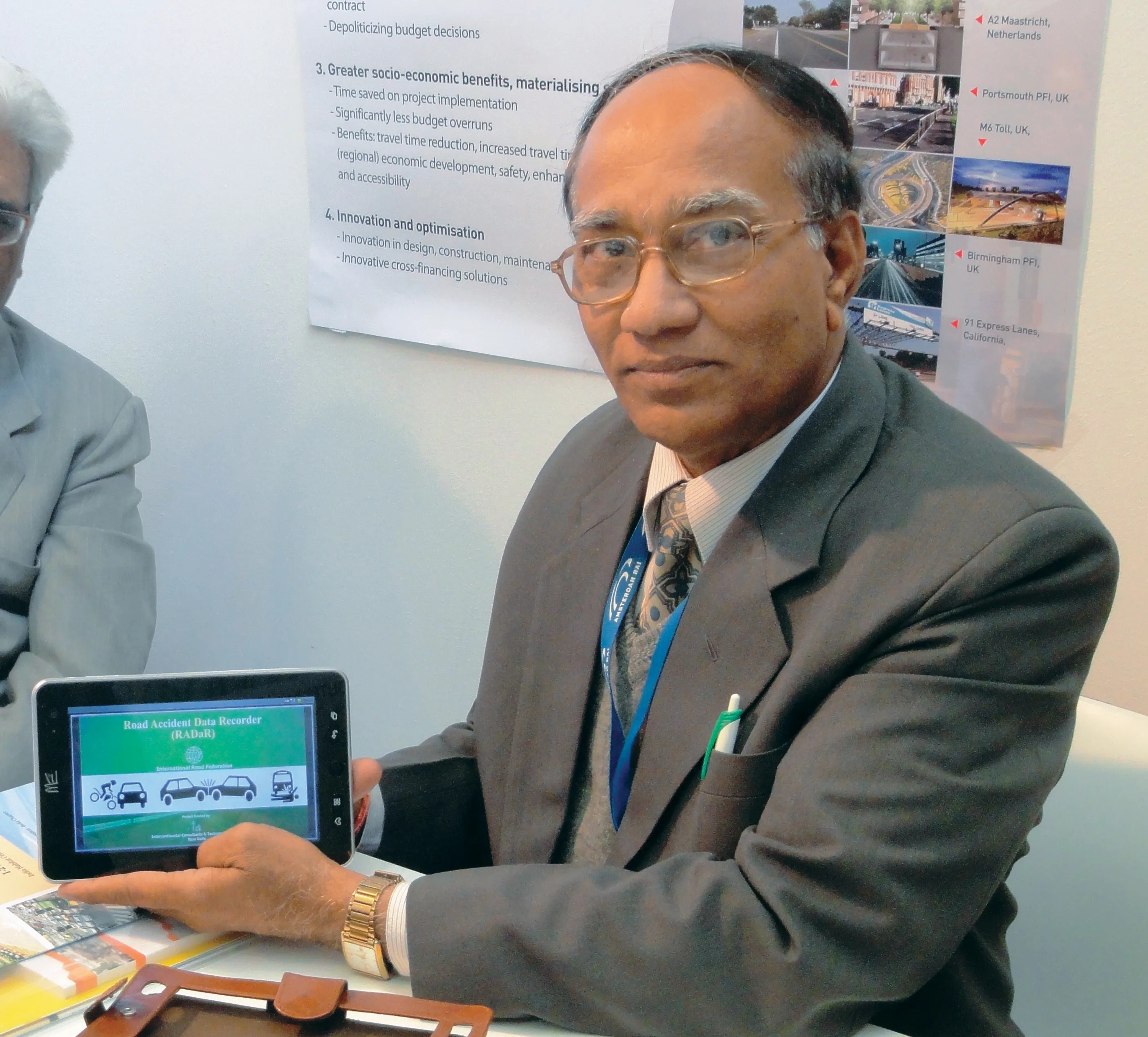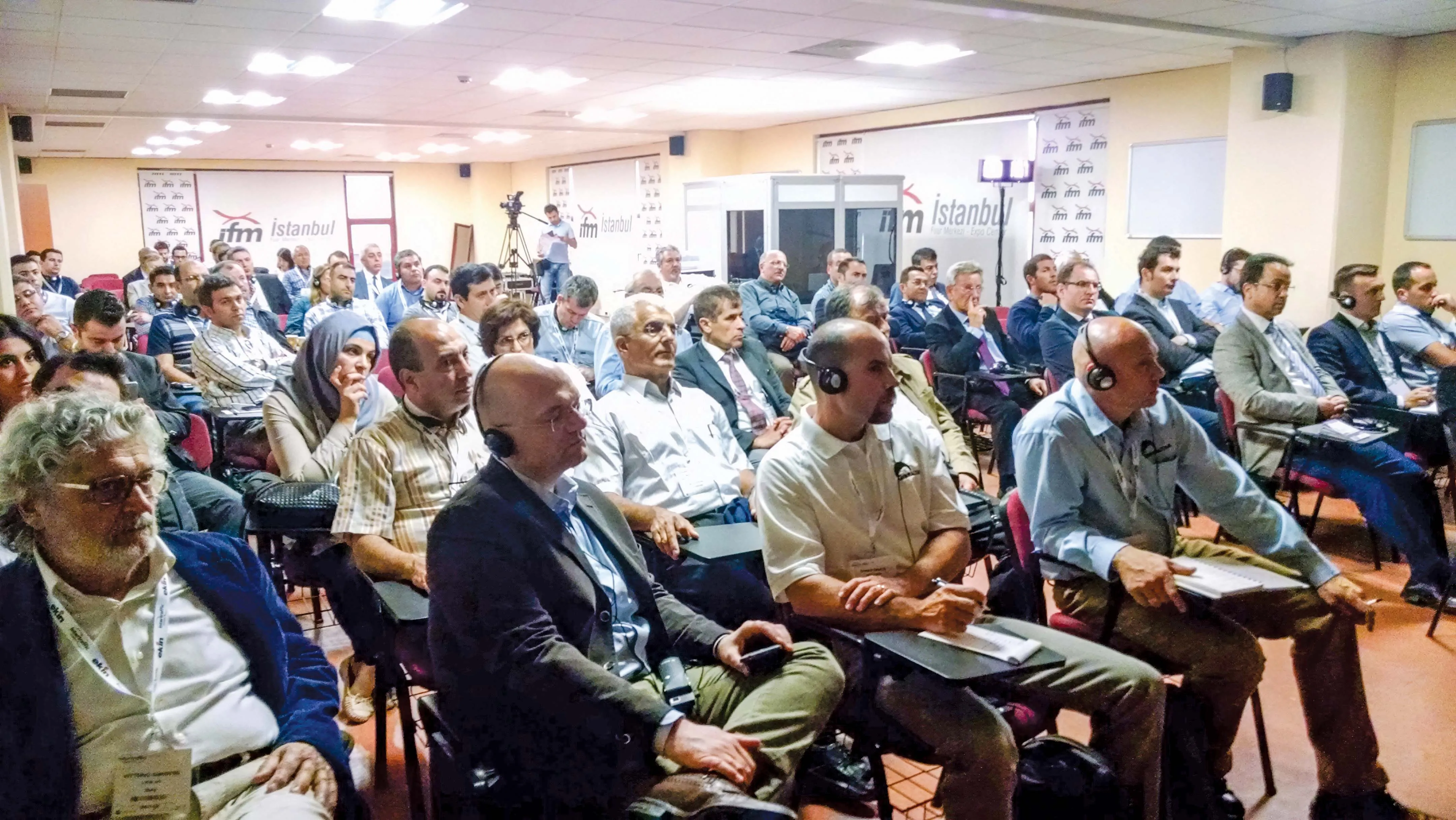In this second of a two-part interview, Rohit Baluja introduces the work of the Delhi-based Institute of Road Traffic Education that he established in 1991 by way of practical response to the particular challenges of road safety in a developing world context Despite the alarming trends outlined in the first part of this article (World Highways: Vol.21, Issue No.6), Rohit Baluja remains optimistic that, if only the proper foundations of traffic management systems can be established, there is no reason why dr
October 31, 2012
Read time: 6 mins

In this second of a two-part interview, Rohit Baluja introduces the work of the Delhi-based Institute of Road Traffic Education that he established in 1991 by way of practical response to the particular challenges of road safety in a developing world context
Despite the alarming trends outlined in the first part of this article (World Highways: Vol.21, Issue No.6), Rohit Baluja remains optimistic that, if only the proper foundations of traffic management systems can be established, there is no reason why drivers in the developing world cannot be just as disciplined as those he recalls from his first business trips to Austria and Germany – with consequently spectacular potential for saving lives. It is anything but a lost cause: “In Delhi, during 2007, the Centre for Analysis and Research in Road Safety (CARRS)-IRTE calculated, on the basis of video evidence, that some 146 million traffic violations were occurring daily in the capital city of Delhi. This was a conservative estimate and yet only a relatively low, albeit tragic, average of five people a day were being killed.” This points to the conclusion that drivers may be more aware and equipped to deal with the risks of violation than their counterparts in the developed world, and thus actually have the capacity to be more prudent and skilful as a consequence.“If we can succeed in grafting discipline onto such natural, survival-based, driving aptitude,” suggests Baluja, “there is no reason why we should not witness rapid change in driver behaviour and consequent upliftment in road safety throughout the developing world.” The help of
Such was the vision that inspired Baluja to create the Institute of Road Traffic Engineering (
As introduced in part one, IRTE has, since the launch of the UN Decade of Action, been complemented by a dedicated College of Traffic Management (CTM) comprising five formal schools, respectively focusing on analysis and research, driver training, traffic enforcement, education & media and the public health dimensions of road safety. Full details of their achievements and innovations since inception, as well as the extensive range of practical courses offered, can be found on the IRTE website (%$Linker:
In essence, Baluja’s ambition for the College is that it should serve as a focal point for sharing research and stimulating practical dialogue between the developed countries, who are promoting their materials and innovations, and the developing nations which would be given an opportunity to express their specific needs as well as the areas in which they feel they are failing or require special help.
For instance, the school of traffic enforcement also addresses the vital dimension of traffic engineering, which in most developing countries is not generally provided for by road authorities - as is customary in the developed world - but instead tends to fall under the default responsibility of the traffic police, who lack the requisite expertise. The school, therefore, provides training for key personnel, including police officers, in the basic skills of traffic engineering, transport management and road safety audits. The facility includes an exhibition centre featuring the latest traffic control and other related devices.
“The emphasis is firmly on a practical, hands-on approach – so, for example, we are currently researching on reflectivity in active collaboration with 3M, and have audited upwards of 241,000 km of national and state highways for corporates like BP, Castrol and Cairn (among others) in close consultation with the relevant authorities. Again, the problem is one of deficient and/or outdated standards. As we cannot conduct coherent road audits without giving parallel attention to reviewing the underlying standards, we are also offering courses on road safety traffic management, risk management and intersection management. The Government of India has accredited the school for the training of senior policemen throughout the country. We are, furthermore, responsible for building the relevant skills sets for military police within the army and air force.”
In 1995, IRTE developed a state of the art traffic enforcement technology vehicle called Interceptor™. Designed for practical use by police, and currently being deployed in 16 Indian states, the Interceptor vehicles offer a comprehensive mobile enforcement and education system, comprising customised equipment and software complemented by an on-board data analysis centre.
Crash investigation is being conducted in association with the European Association for Accident Research & Analysis, and the Institute of Vehicle Safety at the Graz University of Technology in Austria. The facility at the Delhi campus includes a forensic engineering laboratory that, for the first time, offers training for the Indian police in the skills of collecting scientific accident evidence. “Another important new area we are addressing,” continues Baluja, “is the public health dimension of road safety, a programme initiated in association with the U.S. Centers for Disease Control and Prevention (CDC). Again, for the first time in India, comprehensive grounding is now available in the mental health issues affecting drivers as well as factors such as fatigue and the effects of drink and drugs. In parallel, a dedicated trauma research and training centre undertakes cutting edge research in collaboration with the JPN Apex Trauma Centre.
Meanwhile, our school of driver training has been associated with the UK driver standards agency and organisations like a2om. It is here that we focus on building the skills of motor licensing officers, fleet operators and driving instructors as well as, of course, the drivers themselves, using modern facilities that include a driving simulator lab adapted to Indian road conditions, a cut section laboratory and ergonomically designed classrooms. We have also recently begun to introduce e-learning systems enabling us to extend our outreach to other Asian Pacific countries. Last but not least, there is the School of Road Safety Education and Media Development, which, in cooperation with the Government of India, brings our awareness work directly into the villages where 65% of our population lives, and where a fifth of road accidents occur.”
Baluja has built up research affiliations with an impressive range of partners including the leading international academic, corporate and institutional bodies listed on the IRTE website. He is always on the lookout for other mutually constructive partnerships based on sharing and contributing research and is particularly keen to develop links within and between the developing countries themselves so as to stimulate sharing of best practices and lessons learnt - one of the priority areas recognised by IRF’s Group of Experts on Road Safety.









